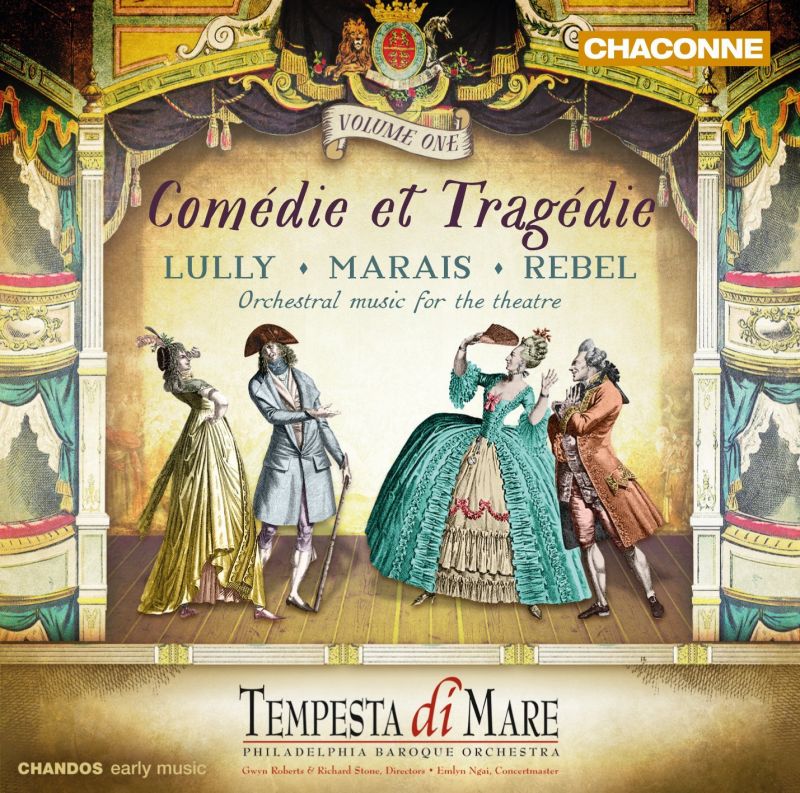Comédie et Tragédie, Vol 1
View record and artist detailsRecord and Artist Details
Composer or Director: Jean-Baptiste Lully, Richard Stone, Marin Marais, Jean-Féry Rebel
Genre:
Orchestral
Label: Chandos
Magazine Review Date: 04/2015
Media Format: CD or Download
Media Runtime: 67
Mastering:
DDD
Catalogue Number: CHAN0805

Tracks:
| Composition | Artist Credit |
|---|---|
| (Le) Bourgeois gentilhomme, Movement: Suite |
Jean-Baptiste Lully, Composer
Gwyn Roberts, Conductor Jean-Baptiste Lully, Composer Philadelphia Baroque Orchestra Richard Stone, Composer Tempesta di Mare |
| (Les) Élémens |
Jean-Féry Rebel, Composer
Gwyn Roberts, Conductor Jean-Féry Rebel, Composer Philadelphia Baroque Orchestra Richard Stone, Composer Tempesta di Mare |
| Alcyone, Movement: Suite |
Marin Marais, Composer
Gwyn Roberts, Conductor Marin Marais, Composer Philadelphia Baroque Orchestra Richard Stone, Composer Tempesta di Mare |
Author: Julie Anne Sadie
Their new release, a disc of French theatre music by Lully, Rebel and Marais, marks the first of a projected series. The choice of music on this CD already enjoys reasonable currency, especially Jordi Savall’s version of Lully’s ‘Cérémonie des Turcs’ from Le bourgeois gentilhomme (1670) for the film Tous le matins du monde (1994). Rebel’s ‘Le chaos’ that opens Les éléments (1737 38) once heard is never forgotten and much the same can be said of the dramatic ‘Tempête’ in Marais’s opera Alcyone (1706). Subsequent releases will undoubtedly include less well-known gems.
Tempesta di Mare opt for a softer-edged soundscape than many other specialist Baroque ensembles. In particular, a distinct sense of distance characterises their Lully tracks. The directors have taken full advantage of Lully’s sparsely preserved instrumentation and used solo guitars, recorders and bassoon in the ‘Canaries’ and solo bassoon in the ‘Tambourins’ to good effect, though one might question some of the percussion effects. They have also respected Lully’s well-known aversion to inégalité, though some may feel the music sounds slightly foursquare as a result. The group seem genuinely at home in the 18th-century music, and the recorded sound in the Rebel and Marais is more immediate. The tempos are well chosen – dignified in the overtures and marches, lilting and swaggering in the airs and dances – and the command of dynamics and ornamentation are superb throughout.
Discover the world's largest classical music catalogue with Presto Music.

Gramophone Digital Club
- Digital Edition
- Digital Archive
- Reviews Database
- Full website access
From £8.75 / month
Subscribe
Gramophone Full Club
- Print Edition
- Digital Edition
- Digital Archive
- Reviews Database
- Full website access
From £11.00 / month
Subscribe
If you are a library, university or other organisation that would be interested in an institutional subscription to Gramophone please click here for further information.




